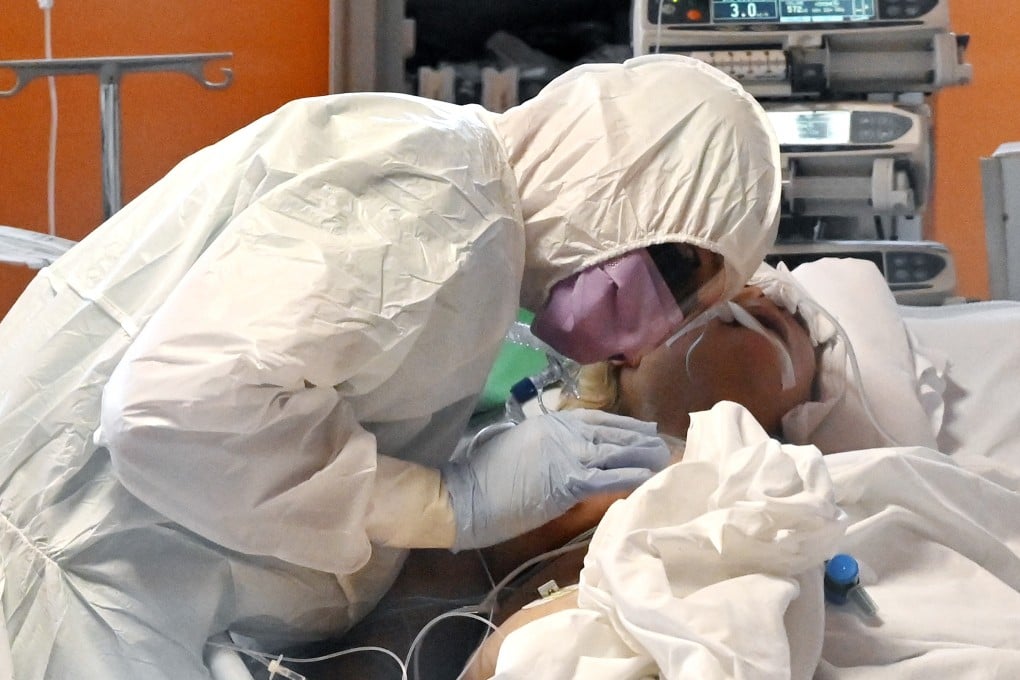Coronavirus antibodies may not help with cure, after Dutch study sees harmful effect in ICU patients
- The blood from seriously ill Covid-19 patients on ventilators was found by researchers to be highly inflammatory and harmful to the body
- Chinese epidemiologist says scientists cannot put all their bets on antibodies to control virus

Immunoglobulin G (IgG) is a fork-shaped molecule produced by adaptive immune cells to intercept foreign invaders. Each type of IgG targets a specific type of pathogen.
The IgG for Sars-CoV-2, the virus causing Covid-19, fights off the virus by binding with the virus' unique spike protein to reduce its chance of infecting human cells. They usually appear a week or two after the onset of illness, when the symptoms of most critically-ill patients suddenly get worse.
A research team led by Professor Menno de Winther from the University of Amsterdam in the Netherlands said they might have found an important clue that may answer why the IgG appears only when patients are ill enough to be admitted to the intensive care unit (ICU).
The scientists found that the blood from Covid-19 patients struggling for their life on ventilators was highly inflammatory. They observed during a series of experiments that it could trigger an overreaction of the immune system, destroy crucial barriers in tissues and cause water and blood to spill over in the lungs.
When Winther and his colleagues compared the blood from Covid-19 patients to those battling other diseases in the ICU, they discovered that Covid-19 patients had a disproportionately large amount of Sars-CoV-2-specific IgG. These antibodies “strongly amplify pro-inflammatory response”, they said in a non-peer-reviewed paper posted on preprint platform bioRxiv.org on Monday.